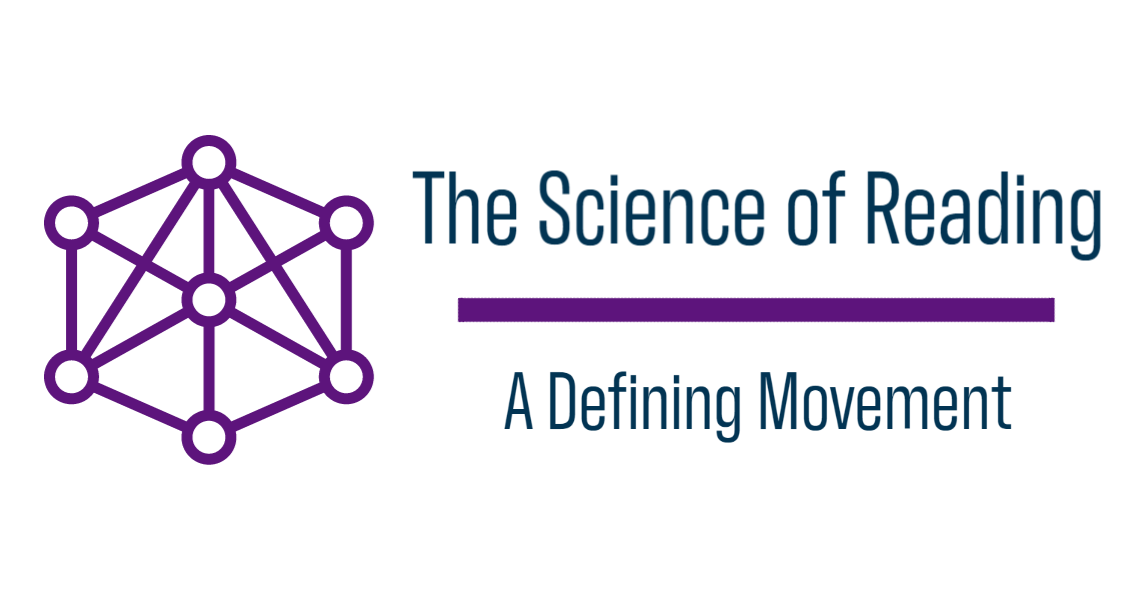THE READING LEAGUE ANNOUNCES NEW ‘DEFINING MOVEMENT’ COALITION OF LITERACY EXPERTS TO SOLIDIFY THE SCIENCE OF READING DEFINITION

SAReads, The Learning Alliance, the Foundation for Excellence in Education, among others, join forces to provide consistency and guidance around the implementation of the science of reading in classrooms across the country
Syracuse, NY — The Reading League (TRL) today announced the launch of its latest initiative, “Science of Reading: A Defining Movement” — a coalition of educators, policymakers, education advocates and academics, to develop a shared definition of the term “science of reading.”
“For years now, the phrase “the science of reading” has been used without a strong foundational understanding of its meaning,” said Dr. Maria Murray, CEO and President of The Reading League. “Now that we see the phrase being attached to efforts that are not evidence-aligned and as more people start to join our movement, The Reading League felt it was time to gather nationally renowned experts to create a plan to protect and honor the body of knowledge considered the science of reading, clarify the definition, and provide a comprehensive guide for stakeholders.”
The science of reading is a vast, interdisciplinary body of scientifically-based research about reading and issues related to reading and writing.
This research has been conducted over the last five decades across the world, and it is derived from thousands of studies conducted in multiple languages. The science of reading has culminated in a preponderance of evidence to inform how proficient reading and writing develop; why some have difficulty; and how we can most effectively assess and teach and, therefore, improve student outcomes through prevention of and intervention for reading difficulties.
To date, TRL has over 27,000 members as part of its growing network to help enlighten more educators to the benefits of the science of reading and to support more young people on their journey to literacy.
Members of the new coalition include:
- Heidi Beverine-Curry, Ph.D., Vice President-Professional Development, The Reading League
- Kymyona Burk, Ed.D., Early Literacy Policy Director, Foundation for Excellence in Education
- Linda Diamond, author “Teaching Reading Sourcebook” and “Assessing: Reading Multiple Measures” and Founder Consortium on Reaching Excellence
- Melissa Farrall, Ph.D., Director for Evaluation, Stern Center for Language and Learning
- Margie B. Gillis, Ed. D.,Founder and President, Literacy How, Inc.
- Barbara Hammond, Co-founder and CEO, The Learning Alliance
- DeJunne’ Clark Jackson, Vice President of Program Development, The Center for Development & Learning; Founder, Learning Fundamentals Educational Therapy & Consulting; President, The Reading League Louisiana; State Leader, Decoding Dyslexia Louisiana
- Kelli Johnson, Reading Coach Director, The Reading League
- Pam Kastner, Ed.D., State Lead Consultant for Literacy, The Pennsylvania Training and Technical Assistance Network (PaTTAN) & President of The Reading League Pennsylvania
- Kari Kurto, Literacy Specialist, Rhode Island Department of Education
- Louisa C. Moats, Ed.D., President, Moats Associates Consulting, Inc., Sun Valley, Idaho
- Maria Murray, Ph.D., President and CEO, The Reading League
- Emily J. Solari, Ph.D., Professor and Coordinator, Reading Education, School of Education and Human Development, University of Virginia
- Laura Stewart, National Director, The Reading League
- Stephanie A. Stollar, Ph.D. Part-Time Assistant Professor, Mount St. Joseph University, Founder of The Reading Science Academy
- Pamela Toman, Co-Founder & Executive Director, Literacy San Antonio, Inc. / SAReads
- Liz Woody Remington, Co-Founder of The Learning Alliance and Director of Professional Development
- Toni Ann Walsh, Vice President, Marketing and Development, The Reading League
- Dale W. Webster, Ph.D., Chief Academic Officer, Consortium on Reaching Excellence in Education (CORE)
TRL announced the new joint effort at its annual winter symposium today, a virtual event focused on addressing questions around the science of reading, such as what the term means, what evidence suggests the science of reading is effective, common misconceptions around the movement and how it is impacting policy and published materials. The symposium featured a series of sessions designed to help teachers and education leaders bring the findings from the science of reading to the forefront.
“At SAReads, a Texas Education Agency Authorized Reading Academy, we believe aligning instruction with the science of reading will produce the best results for the most kids,” said Pamela Toman, a Defining Moment coalition member and Co-Founder & Executive Director, Literacy San Antonio, Inc. / SAReads. “Through the Defining Moment coalition, SAReads is able to unite our efforts in Texas with others across the world to ensure education stakeholders (parents, educators, publishers, etc.) can access resources and accurate information about the science of reading.”
The Defining Moment coalition is driven by the underlying belief that learning to read and teaching reading to all children is a 21st century civil right. In addition to developing a comprehensive definition for the term “science of reading,” the coalition will develop language explaining its rationale, and develop a series of calls to action for education leaders and stakeholders.
A microsite is in development that will become a hub for resources and will include a guidebook, messaging and data that can be used to talk more collaboratively about the science of reading, the growth of the movement and the work ahead.
“No one owns the science of reading,” added Dr. Murray. “It is essentially knowledge to be passed on, shared and implemented. By creating this coalition, along with our list of partners, TRL hopes to dispel myths and lay a stronger foundation for the collaborative work needed to really grow and sustain this movement.”
For more information, The Reading League’s winter symposium, including session abstracts and speaker bios, is available here.